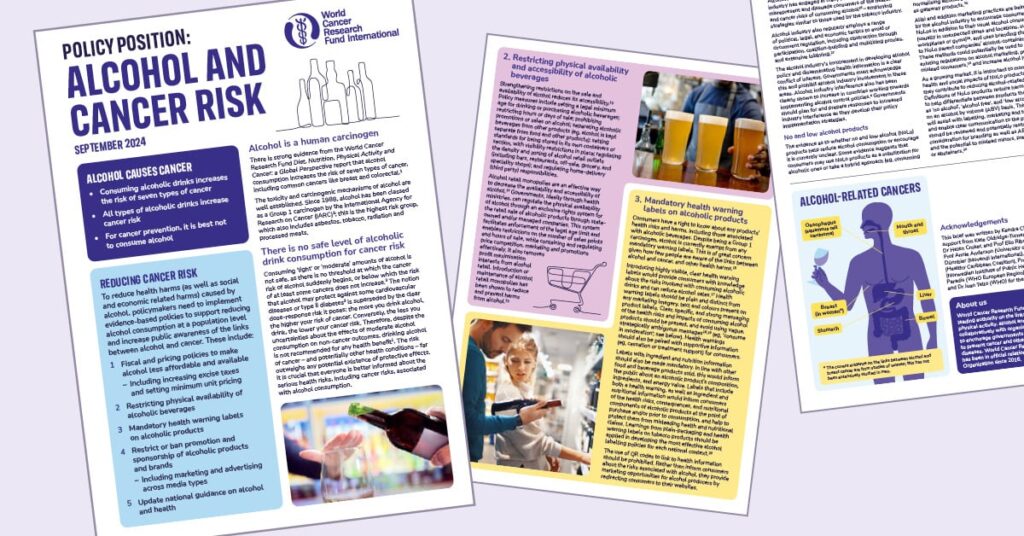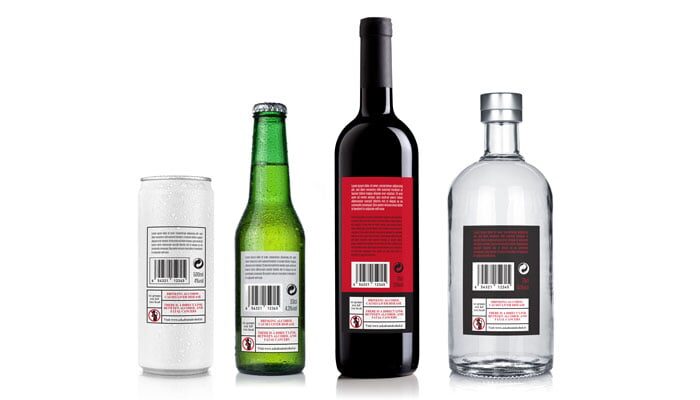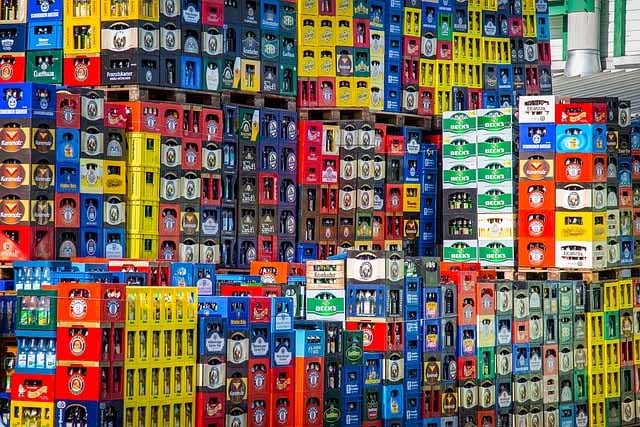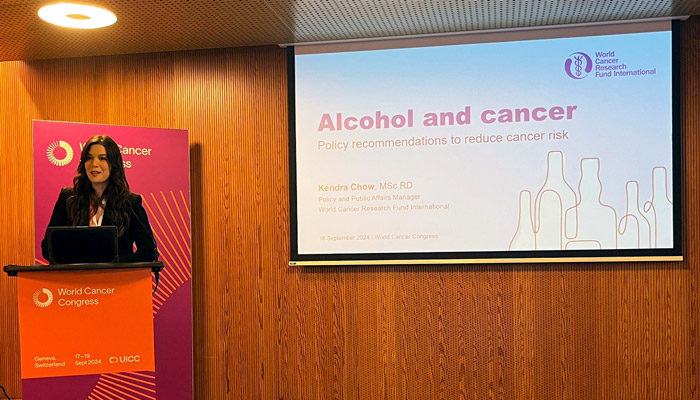Alcohol policy
Our new policy position on alcohol recommends: fiscal and pricing policies; restricting availability; mandatory health warning labels; marketing restrictions; and updated national guidance.
Alcohol causes around 4% of cancer cases and is linked to at least 7 different types of cancer. Policies to reduce consumption and make people aware of the risks are essential to reduce cancer risk. Policymakers play a crucial role in mitigating the health, social and economic harms caused by alcohol.
World Cancer Research Fund International works with partners such as the World Health Organization, and civil society organisations such the Union for International Cancer Control, the NCD Alliance and Movendi International, to push for more government action to reduce alcohol consumption.
Our key policy recommendations
- Fiscal and pricing policies: increasing excise taxes and setting minimum unit pricing to make alcohol less affordable.
- Restricting availability: limiting where and when alcohol can be sold, and regulating alcohol retail outlets.
- Mandatory health warning labels: clear, visible labels on alcoholic products to inform consumers about health risks and nutrition information.
- Marketing restrictions: banning or strictly regulating the promotion and sponsorship by alcoholic products and brands.
- Updated national guidance: ensuring that public health guidelines in every country reflect the evidence on alcohol and cancer risk.

Our Policy Position: Alcohol and cancer risk outlines the policy measures needed to reduce alcohol harms. We recommend that all countries develop, implement, and/or strengthen their alcohol policies, strategies or action plans to support population-level reduction of alcohol consumption. These policies can be implemented as a set of interventions, or ideally comprise national or subnational alcohol strategies or guidelines.
We also highlight issues such as language and public messaging, which can affect how the link between cancer risk and alcohol is understood. For instance, terms like “responsible drinking” or “moderate drinking” can mislead consumers. Instead, messages should emphasise that no level of alcohol consumption is safe for cancer prevention.
The alcohol industry should not be involved in any policy development processes, as it often misrepresents the risks of alcohol consumption and works to circumvent regulations. Governments must recognise and mitigate the influence of the alcohol industry in policy development and health information dissemination.
The impact of no and low-alcohol (NoLo) products on overall alcohol consumption is unclear. These products should be monitored to ensure they do not encourage increased alcohol use or mislead consumers.
 > Read our Policy Position: Alcohol and cancer risk (now available in French and Spanish)
> Read our Policy Position: Alcohol and cancer risk (now available in French and Spanish)
> Read our Policy priorities to prevent cancer to find out what the UK government should do.


